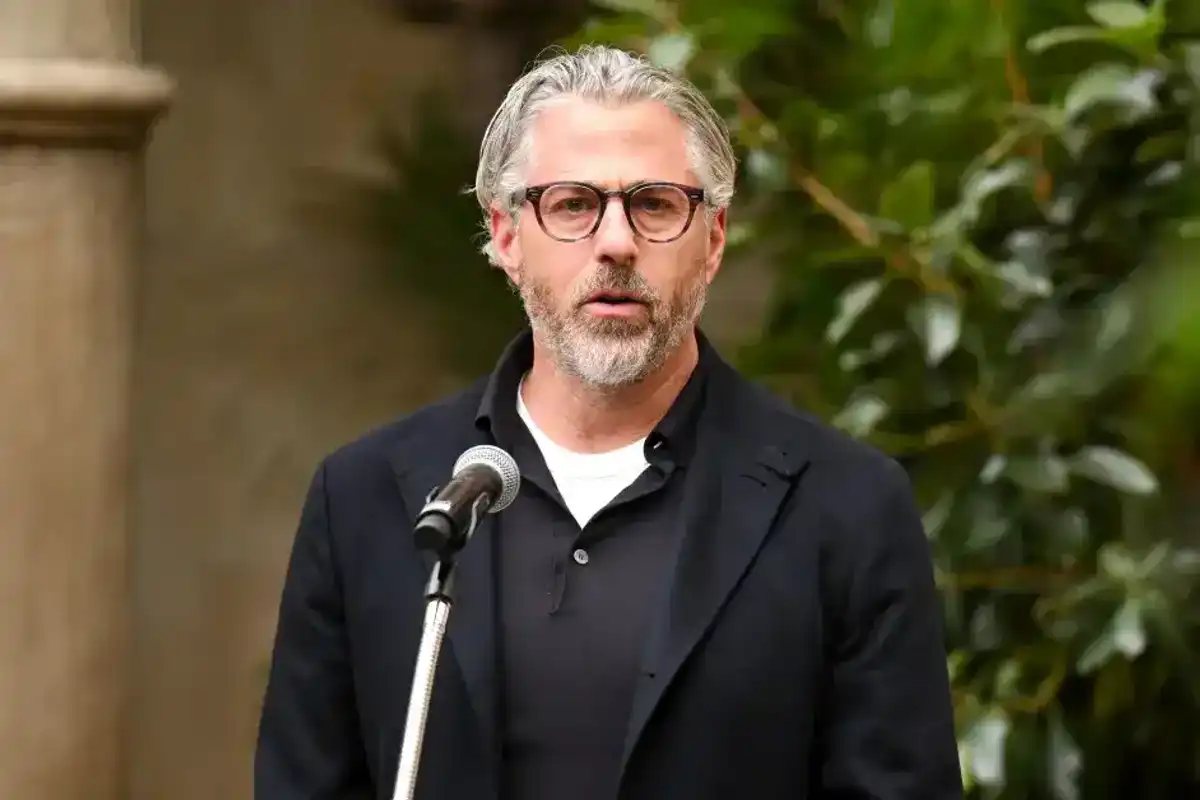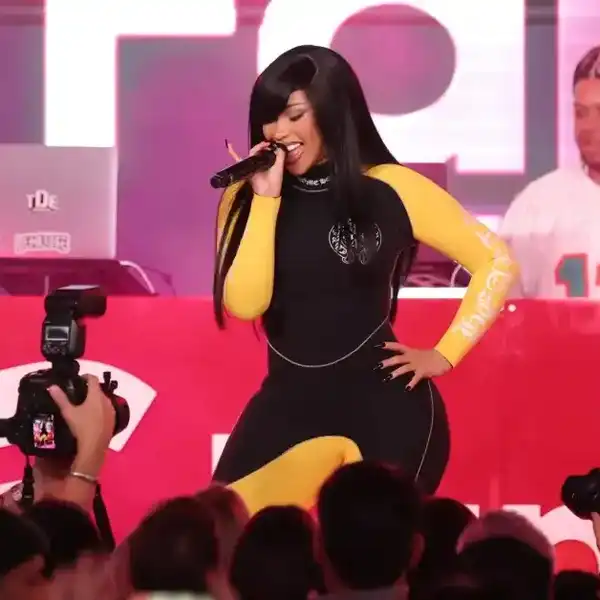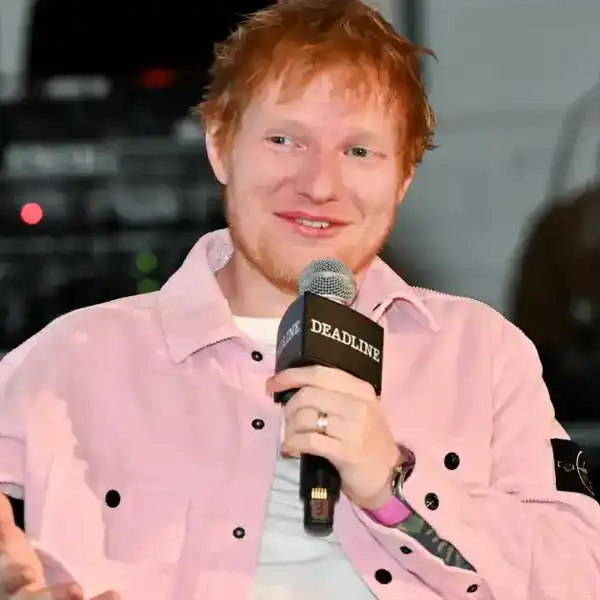Surviving As A Musician ... with Tom Wilson
The Juno-winning roots-rock veteran is also a published author and acclaimed visual artist. In his contribution to our series, he talks about being born to be an artist and the work and rewards that come from that commitment.

By External Source
Tom Wilson is the best selling author of Beautiful Scars as well as a four-time Juno winning Canadian musician with multiple gold records. He has written for and recorded songs with Sarah McLachlan, City and Colour, Jason Isbell, Colin James, Lucinda Williams, Billy Ray Cyrus, Mavis Staples and The Rankin Family. His band Junkhouse scored 11 top-ten hits, and his Americana-fuelled Blackie and the Rodeo Kings was widely publicized for its presence on George Bush’s iPod. Tom’s most recent incarnation, Lee Harvey Osmond, has received extensive praise and airplay throughout the US and Europe. His art has shown in galleries in New York City, Vancouver, Toronto and more recently, The National Gallery in Ottawa. He lives in Hamilton, Ontario.
If you don’t have to do this…
Don’t….
I never wanted to do anything else. It’s that simple. People think I’m fuckin’ with them when I tell them that around the age of four I decided to be a musician, an artist.
Well, it’s true.
Mind you I didn’t know exactly what that was at such a young age but looking back I know for certain that I was born an artist. That’s not as special as it sounds because we’re all born artists. Every one of us.
Think about it.
We’re true to creating art, before the board of education gets their hands on us and shakes us into a line, marches us to our classrooms and puts us in nice straight rows telling us when to speak, what to speak and spelling out the rules on blackboards for us.
Yeah before all that, we are free to sing and dance, make up stories and paint or draw pictures without any inhibitions. So I suppose that the ages of two to four are our glory days...
The lesson is that we can actually do no wrong because there is no wrong to be done when it comes to creating art; in fact, we spend the rest of our working lives trying to get back to being that willing and free to create. We try to get back to being our three-year-old artist selves... Goddamn the world around us for taking away all that beauty.
I’ve been working at becoming an artist my whole life. I work at it every day. The work itself is the gift , the reward that keeps me going.
I wrote my first song when I was 14. I’m 60 now.
If I walk out into the street and get killed in traffic I’ll go down as someone who worked trying to become an artist.
I knew I'd have to walk a separate path. I knew that this thought was not a career choice but a route to my own survival
I’m not so brave but for me, living was never about being safe. It was never about standing still.
Living was never about being accepted or worried about being accepted...
It was about finding a way out of the shadows, coming into focus from between the trees or in my case, getting off the East Mountain in Hamilton and proclaiming myself for better or worse.
I wanted to win or lose anywhere I could on my terms. I needed a place where I could go to beat on my chest and shake loose all the colours I had hiding inside me.
So that’s what I’m doing now and that’s how I’m surviving
I never expected to make a living doing this but I refused to allow my focus to stray from my goal.
I could never hold down any other job anyway. I tried. In fact, I’ve only ever had two jobs, two “straight” jobs that is.
I worked on the loading docks of the Hamilton Spectator starting when I was fourteen, the same year I wrote that first song.
The job was simple. All I had to do was unload newspapers from freight elevators and load them into delivery trucks in an alley off King William Street. We’d work on weekends and late into the weeknights and in between tossing bundles of papers around I’d watch fistfights between the old men working there and I also smoked lots of weed. I got bored and busted and wandered away from that loading dock after 3 years knowing that the money wasn’t important enough to me.
I also drove truck for a construction company, making deliveries to worksites around town. It was an easy job too. All I had to do was load up the truck, drive, lift, carry, and I got to smoke a lot of weed. That’s it. I quit that job after six months. Fuck it, man.
Those are the only jobs I managed to get hired for, show up to and hold down for two short periods of time and I couldn’t smoke enough weed to make sense of wasting that precious time just for some cash…
I was recently sitting in a green room with some fellow, younger and rather brilliant artists I was sharing a short Gord Downie Secret Path tour with.
They were talking about their online music sales and Spotify and royalties etc. You’ve all heard these kinds of locker room chats I am sure.
They asked me if I’ve noticed how things have changed over the years…
I told them that “when I was a kid” we used to sell drugs at our shows to gas up the tank and keep us on the road. It was true.
I remember back in the early 80’s we were playing the summer tobacco circuit up and down Highway #6 south. Highway #6, the mystic highway. The same highway where Ronnie Hawkins fired his drunk bass player, Rebel Payne, and hired a kid out of Turkey Point who grew up shittin’ in a Crisco can named Rick Danko.
We were banging out original Teenage Head style rock ‘n roll in mostly Queens Hotel draft rooms for migrant field workers and summer students working tobacco, and I took one look out into those barrooms and thought there’s two things these guys need besides beer and pussy and that is weed and speed.
There were no drugs for miles, only fields, and I figured I could do some serious business there as a travelling salesman or drug dealer and I could make as much money as the entire band was getting paid.
I was young, maybe 19 or 20 years old and I was thinking on my feet.
That’s how I survived as an artist back then.
Now I do it differently.
I paint. I sell paintings. I do art exhibits in fancy galleries. Selling art brings in about 1/3 of my annual income.
I write books now. I never thought about writing books until Penguin Random House asked me to write one. I’m currently writing my second book, Blood Memory, for them. They pay me to do this. Imagine that. Who’d have thought, right?
I’ve sold my first book to some movie producers and they also pay me for that right.
I still write songs every day. I write for all kinds of wonderful artists as well as for my band Blackie and the Rodeo Kings and one day we’ll get to go back out and pick up on all our cancelled tour dates in Europe and America.
There’s always a way to make enough money without giving up your dream baby.
King Clancy said something like, ‘ if you don’t get them on the ice during the game, then you get them in the alley after.”
That stuck with me.
Surviving as an artist is kinda like a bar fight. You could die if you don’t use everything around you to get through the next three minutes. So any broken bottle or leg of a chair will do the trick if you’re serious about surviving and you’re serious about wanting to continue to be an artist.
The best advice I can give is as follows:
"If you don’t have to do this, don’t"
In fact, please…just stop
If you don’t wake up every day with a burning desire to create something that was not there yesterday then just don’t do it…
Also, to quote Levon Helm
'I ain’t in this for my health'

















